Best Home Generators
- January 22, 2024
- 0 comment
In a world where power outages are often just a storm away, a home generator stands as your steadfast ally. Say goodbye to the hassle of refueling in emergencies or navigating through dark, rain-soaked nights with extension cords. A home generator smoothly steps in, powering your home automatically when you need it most.
To guide you in choosing your power partner, we’ve analyzed the leading Home Standby Generators of 2024. Our rankings, based on cost, warranty, noise level, and more, aim to simplify your decision, ensuring you find the best fit for your home’s needs. Let’s empower your home with a generator that’s as reliable as it is efficient.
List of the Best Home Standby Generators:
- Champion 12.5-kW 100179 Home Standby Generator
- Generac 22kW 7043 Air Cooled Home Standby Generator
- Champion 8.5-kW 100177 Home Standby Generator
- Briggs & Stratton Power Protect 12000-Watt 040666 Home Standby Generator
- Briggs & Stratton Power Protect 10000-Watt 040684 Home Standby Generator
What is Home Generators?
A home generator is a permanent fixture that ensures your house stays powered during outages. Unlike portable generators, it’s directly wired into your home’s electrical system. When the grid fails, it automatically takes over, swiftly providing electricity. It smartly monitors the situation, switching back to the grid once power returns, and then stands by, ready for the next outage. Depending on its capacity, it can either power essential appliances or keep your entire home running smoothly, bridging the gap between grid power and backup without a hitch.
1. Champion 12.5-kW 100179 Home Standby Generator
Specifications
- Wattage: 12,500 watts
- Fuel Type: Propane (LPG), Natural Gas (NG)
- Power Source: Battery Powered
- Item Weight: 455.5 Pounds
- Voltage: 120 Volts
- Output Wattage: 12.5 Kilowatts
- Product Dimensions: 52.4″L x 33.5″W x 32.1″H
- Engine Type: 4 Stroke
- Tank Volume: 5 Gallons
- Engine Displacement: 717 Cubic Centimeters
- Frequency: 60 Hz
The Champion 12.5-kW Home Standby Generator is designed to be a robust and reliable solution for your home’s emergency power needs. This generator stands out for its completely automatic system, including the ATS100 Emergency Essentials Automatic Transfer Switch, ensuring that your power supply switches seamlessly during an outage. It’s not just about reliability; this generator is also designed with comfort in mind. Operating at a residential-friendly 63 dBA noise level, thanks to advanced sound dampening and a specially designed low-tone muffler, it won’t disturb your home’s peace. The 24-volt starting system is remarkable, functioning optimally in extreme weather conditions without the need for a warming kit, and the generator’s capacity to perform weekly self-diagnostic tests ensures it’s always ready for action.
Champion’s 12.5-kW generator is not just powerful, offering 12,500 watts of continuous power on propane and 11,000 watts on natural gas, it’s also user-centric. The design includes an innovative ‘Gullwing’ enclosure for easy installation and maintenance, while the all-weather composite mounting pad and steel enclosure ensure durability. The system’s convenience is further enhanced with features like auto start in power outages, an automatic weekly exercise and test function, and a quiet operation design, making it an ideal choice for residential installations.
Pros
- Provides 12,500 watts with propane and 11,000 watts with natural gas, ensuring your home remains powered during outages.
- Advanced sound dampening and a specially designed low-tone muffler keep noise levels residential-friendly.
- Operates effectively in extreme weather conditions, from -22° F to 104° F, without needing a warming kit.
- Performs weekly self-diagnostic tests and comes with an onboard battery charger to maintain starting power.
Cons
- The exhaust pipe extends from the side, which could potentially harm nearby lawns or plants.
- Lacks a remote control or remote monitoring system, which could add convenience for some users.
2. Generac 22kW 7043 Air Cooled Home Standby Generator
Specifications
- Wattage: 22,000 watts
- Fuel Type: Natural Gas or LP Gas
- Power Source: Natural Gas or LP Gas
- Item Weight: 466 Pounds
- Voltage: 240 Volts
- Output Wattage: 22,000 Watts
- Product Dimensions: 48″L x 25″W x 29″H
- Engine Type: Generac G-Force 1000 Series
- Engine Displacement: 999 Cubic Centimeters
- Frequency: 60 Hz
The Generac 7043 22kW Air Cooled Home Standby Generator is a powerhouse in the realm of home standby generators, boasting an impressive 22,000 watts of output. This generator is a marvel of modern engineering, designed to ensure that your home remains powered and protected during outages. One of the standout features of the Generac 7043 is its remote monitoring capability through Mobile Link Wi-Fi connectivity, allowing you to monitor generator performance and receive maintenance alerts from anywhere. This feature is a game-changer for homeowners seeking peace of mind, especially when away from home.
Generac’s commitment to quality and reliability is evident in every aspect of this generator. With its 200-amp NEMA 3R smart switch, you’re assured whole-house protection, and the unit’s 5-Year Limited Warranty reflects the brand’s confidence in its product. Moreover, the generator’s True Power Technology ensures less than 5 percent total harmonic distortion, delivering clean, stable power, while the G-Force Engine, engineered specifically for generator use, promises reliability and reduced maintenance. Designed and assembled in the USA, the Generac 7043 is not just about power; it’s about providing a seamless, worry-free experience for homeowners.
Pros
- Offers a substantial 22,000 watts, ensuring your entire home stays powered during an outage.
- Mobile Link Wi-Fi connectivity enables you to monitor your generator’s status and receive maintenance alerts from anywhere.
- The purpose-built G-Force Engine and advanced True Power Technology guarantee consistent power and reduced maintenance.
- Ability to switch between natural gas and liquid propane easily without tools.
Cons
- Operates at a higher noise level compared to other generators in the review.
- Offers a five-year limited warranty, which may not be as extensive as some homeowners prefer.
- Has the largest footprint of any generator reviewed, requiring more space for installation.
3. Champion 8.5-kW 100177 Home Standby Generator
Specifications
- Wattage: 8500 watts
- Fuel Type: Propane (LPG), Natural Gas (NG)
- Power Source: Battery Powered
- Item Weight: 394.1 Pounds
- Voltage: 120 Volts
- Output Wattage: 7500 Watts
- Special Feature: Super Quiet
- Product Dimensions: 52.4″L x 33.5″W x 32.1″H
- Engine Type: 4 Stroke
- Engine Displacement: 439 Cubic Centimeters
- Frequency: 60 Hz
The Champion 8.5-kW Home Standby Generator stands as a testament to seamless power delivery and quiet operation, tailored for uninterrupted peace of mind. This generator, with its innovative design, ensures that your home stays powered 24/7 without the need for manual operation or refueling. The 8.5-kW generator provides a steady power supply of 8500 watts on propane and 7500 watts on natural gas, making it a versatile solution for various home needs. It is especially noteworthy for its ‘Gullwing’ enclosure, which not only enhances the aesthetic appeal but also allows easy access for installation and service.
The operational efficiency of this generator is matched by its user-friendly features. The 24V starting system is robust, designed to function optimally in extreme temperatures ranging from -22º F to 104º F, eliminating the need for a warming kit. Its sound-dampening lining and low-tone muffler, operating at a residential-friendly 59.5 dBA, ensure that the generator’s presence is felt, not heard. Furthermore, the ATS50 – a 50 amp, 10 circuit, outdoor-rated automatic transfer switch – enhances the generator’s seamless integration into your home power system.
Pros
- Provides consistent power with 8500 watts on propane and 7500 watts on natural gas.
- Advanced sound dampening and low-tone muffler make this unit the quietest in its class at 59.5 dBA.
- Comes with an automatic transfer switch, operates in extreme temperatures without a warming kit, and performs weekly self-diagnostic tests to ensure reliability.
- The ‘Gullwing’ enclosure design offers easy access for maintenance and a full view of the onboard control system.
Cons
- Occupies a larger space despite its smaller output compared to other models.
- The side-extending exhaust pipe may pose a risk to nearby lawns or plants.
- Absence of remote control or remote monitoring capabilities could be a downside for users seeking advanced control options.
4. Briggs & Stratton Power Protect 12000-Watt 040666 Home Standby Generator
Specifications
- Wattage: 12000 watts
- Fuel Type: Liquid propane/Natural gas
- Power Source: Liquid propane/Natural gas
- Item Weight: 361 Pounds
- Voltage: 240 Volts
- Output Wattage: 12000 Watts
- Special Feature: Quiet operation
- Product Dimensions: 28″L x 24.5″W x 37.2″H
- Engine Type: Briggs & Stratton Vanguard
- Engine Displacement: 623 Cubic Centimeters
- Frequency: 60 Hz
The Briggs & Stratton Power Protect 12000-Watt 040666 Home Standby Generator stands as a compact yet potent solution for your home power needs. Boasting a footprint 30% smaller than competitive models, it offers more installation flexibility without compromising on performance. This generator is designed with your peace in mind, operating over 75% quieter during its weekly test mode compared to full-load noise levels. It’s not just about quiet operation; this generator also brings reliability to the forefront with a comprehensive 6-year limited warranty, one of the most extensive in the industry.
Briggs & Stratton have integrated a host of features to ensure that the Power Protect 12000-Watt generator meets your power requirements effectively. It’s optimized for both NG and LP, ensuring consistent backup power using either fuel type. The inclusion of a Vanguard commercial-grade engine is indicative of the generator’s ability to provide reliable power even through demanding applications. The generator’s capability to be installed as close as 18 inches from your home, coupled with options for Symphony II or Amplify™ Power Management, exemplifies the brand’s commitment to convenience and adaptability. With Schaeffer Full Synthetic Generator Oil, the generator also offers enhanced cold weather protection, ensuring readiness even in challenging conditions.
Pros
- 30% smaller footprint offers more installation options and ease of placement.
- Comes with a substantial 6-year limited warranty, reflecting confidence in the product’s durability.
- Operates significantly quieter during weekly test mode, ensuring minimal disturbance.
- Optimized for both NG and LP, offering flexibility in fuel choice.
- Features a Vanguard commercial-grade engine known for its reliability and performance.
Cons
- At 70 dBA, the operating volume is louder than average, which might be a consideration for some users.
- Does not come with an automatic transfer switch, necessitating a separate purchase for seamless power transition.
- Some users have reported inconsistencies in reliability, though this is offset by the strong warranty.
5. Briggs & Stratton Power Protect 10000-Watt 040684 Home Standby Generator
Specifications
- Wattage: 10000 watts
- Fuel Type: Liquid propane/Natural gas
- Power Source: Liquid propane/Natural gas
- Item Weight: 272 Pounds
- Voltage: 240 Volts
- Output Wattage: 10000 Watts
- Product Dimensions: 28″L x 24.5″W x 34.8″H
- Engine Type: Briggs & Stratton Vanguard
- Engine Displacement: 570 Cubic Centimeters
- Frequency: 60 Hz
The Briggs & Stratton Power Protect 10000-Watt 040684 Home Standby Generator emerges as a compact powerhouse, providing a reliable backup power solution with a footprint 50% smaller than its class competitors. This generator is designed not only to meet your essential power needs during outages but to do so while occupying minimal space, offering more installation flexibility. With a built-in front-facing exhaust and the ability to be installed as close as 18 inches from your home, the PP10 model is both a space-efficient and user-friendly choice.
At the heart of this generator is a Vanguard commercial-grade engine, renowned for its reliability and capability to power through the most demanding applications. The generator’s design is optimized for both NG and LP, ensuring consistent backup power using either fuel type. Briggs & Stratton’s commitment to quality is further demonstrated by the 6-year limited warranty and the fact that the generator is designed, engineered, and assembled in the U.S.A. Optional features like the Symphony II Power Management system and Schaeffer Full Synthetic Generator Oil for enhanced cold weather protection underscore the brand’s attention to detail and dedication to providing a comprehensive power solution.
Pros
- 50% smaller footprint than other generators in its class, offering increased installation flexibility.
- Comes with a 6-year limited warranty, indicating confidence in the product’s longevity.
- Optimized for both NG and LP, offering flexibility in fuel choice.
- Equipped with a Vanguard commercial-grade engine known for its reliability and performance.
- Enhanced cold weather protection to -20 Fahrenheit with Schaeffer Full Synthetic Generator Oil.
Cons
- At 70 dBA, the operating volume is louder than average, which might be a consideration for some users.
- Does not come with an automatic transfer switch, necessitating a separate purchase for seamless power transition.
- Some users have reported inconsistencies in reliability, though this is offset by the strong warranty.
Comparison Table of the Best Home Generators
Choosing the Perfect Home Generator: A Simple Guide
- Power Requirements: Before making a purchase, it’s crucial to understand your home’s power needs. Start by listing the wattage requirements of essential appliances such as refrigerators, air conditioning units, sump pumps, medical devices, water heaters, and space heaters, as these tend to consume the most power. Many manufacturers offer online wattage calculators to help you estimate the size of the generator you need. Alternatively, you can calculate the required wattage manually by noting the ‘starting watts’ and ‘running watts’ indicated on each appliance. Remember, ‘starting watts’ refer to the initial surge of power needed to start the appliance, while ‘running watts’ are what the appliance needs to keep running. If ‘starting watts’ aren’t specified, a general rule of thumb is to multiply the ‘running watts’ by three. After calculating the starting watts for each appliance, add them together and multiply the total by 1.5 to incorporate a safety margin. Typically, a small to medium-sized U.S. household will require a generator with an output of 5,000 to 7,500 watts, though many models offer outputs ranging from 7,500 to 10,000 watts.
- Size and Noise: The physical footprint and noise level of the generator are important considerations, especially if you have limited space or prefer a quiet environment. The larger models typically measure around 30 inches by 30 inches by 48 inches, while smaller models are closer to 24 inches by 24 inches by 36 inches. According to NFPA codes, generators should be placed at least five feet away from any home openings like doors and windows. However, smaller generators can be installed as close as 18 inches from your home’s exterior wall, but it’s always wise to check local codes as they might have different requirements. Noise is another factor to consider. Most generators operate within the range of 60 to 70 decibels, similar to the sound level of a running vacuum cleaner. A generator’s noise level is particularly important if it will be placed near living areas.
- Fuel Type: The fuel type of your generator can affect its convenience and performance. The models listed typically run on liquid propane (LP), natural gas (NG), or both. Dual-fuel models offer flexibility, allowing you to switch between fuel types without the need for tools. Propane is known for its affordability and clean burn, leaving minimal contamination. It’s available in various container sizes, and some homes even have permanent propane tanks installed. On the other hand, natural gas generators can be directly connected to your home’s gas line, providing a virtually unlimited fuel supply. However, natural gas is less energy-efficient than propane and will produce less power. Additionally, a generator running on natural gas is still dependent on the gas grid for backup power.
- Purchase Price: While a home generator is a long-term investment, it’s essential to choose a model that fits within your budget. Generally, generators with a higher kilowatt output come with a higher price tag. Consider the initial purchase price as well as long-term operating and maintenance costs when making your decision.
- Operating Temperature Range: The operating temperature range is a critical factor, especially in extreme climates. Smaller generators, usually under 20 kW, are typically air-cooled, while larger models tend to have liquid cooling systems to maintain a stable temperature regardless of the outdoor conditions. Most generators function optimally in temperatures ranging from 32°F to 100°F. If you live in an area with freezing temperatures, consider a model with a cold-weather kit, including a battery heater and an oil heater, to ensure smooth operation. Be aware that very high temperatures can significantly reduce a generator’s efficiency.
- Warranties: Lastly, pay close attention to the warranty offered with the generator. Warranties can vary significantly, with the industry standard being a limited 5-year warranty covering parts and repair labor. Some manufacturers offer extended coverage for an additional year or two, and extended warranties of up to ten years are often available for purchase. Make sure to read the warranty details thoroughly to understand what is covered, under what circumstances the warranty service is triggered, and what is excluded. It’s common for manufacturers to offer different warranty lengths for various components and to specify what’s protected and what isn’t.
By carefully considering these factors, you’ll be well-equipped to choose a home generator that not only meets your immediate power needs but also aligns with your long-term expectations for reliability, convenience, and peace of mind.
Why a Home Generator is a Smart Choice
- Home generators kick in automatically when the power goes out, thanks to electric start and automatic transfer switches (ATS). No manual starting or remote controls needed – it’s all seamless.
- For generators above 5,000 watts, an ATS is a must. It not only switches your power source from the grid to the generator during outages but also ensures the safety of the city’s grid. Load transfer switches (50-amp and 100-amp) handle essential circuits, while a 200-amp service disconnect transfer switch can power your entire home.
- Home generators dwarf portable ones in power capacity, offering 10,000 to 50,000 watts or more. This means not just keeping your crucial appliances running but potentially supporting your neighbors too.
- Permanently installed and often running on liquid propane or natural gas, home generators negate the need for manual setup or fuel trips. They’re ready to go, rain or shine.
- Keep tabs on your generator’s health with remote monitoring. Whether through an app or a service, you’re always in the loop about its status and maintenance needs.
- Protect your generator from overload with smart load management. It prioritizes power to essential systems, ensuring your generator runs efficiently and your crucial appliances remain powered.
Overall Conclusion
In conclusion, navigating the complexities of choosing a home generator is crucial for ensuring uninterrupted comfort and safety in your household. Factors such as power requirements, size, noise levels, fuel type, budget considerations, operating temperature range, and warranty options are all pivotal in making an informed decision. After careful analysis and comparison of the top contenders, the Generac 7043 Air Cooled Home Standby Generator emerges as the overall top pick.
With its robust 22,000-watt output, it stands ready to meet the most demanding power needs. Its standout features like remote monitoring capability, True Power Technology for less than 5 percent total harmonic distortion, and a strong 5-year warranty make it a comprehensive choice for those seeking reliability and convenience. Although it’s on the higher end of the noise spectrum, its ability to deliver consistent, high-quality power, and the ease of switching between natural gas and liquid propane ensure that your home remains a haven of comfort and security during power outages. The Generac 7043 exemplifies not just a backup power solution, but a long-term investment in your home’s resilience and quality of life.
FAQs
- What’s the difference between ‘starting watts’ and ‘running watts’, and why does it matter?
‘Starting watts’ are the extra power needed to start motor-driven products like refrigerators or AC units. ‘Running watts’ are the continuous watts needed to keep items running. Knowing both helps ensure you choose a generator that won’t overload when multiple appliances start simultaneously. - Can I install a home generator myself, or do I need a professional?
While some homeowners are capable of installing smaller generators, it’s generally recommended to have a professional install your home generator. This ensures safe and compliant installation, especially for larger models that are hardwired into your electrical system. - How do I maintain my home generator, and how often should it be done?
Regular maintenance typically includes checking oil levels, replacing filters, and running the generator periodically to ensure it’s ready for use. The frequency can vary based on the model, so it’s best to follow the manufacturer’s guidelines. - Can a home generator power my entire house, or just essential appliances?
It depends on the generator’s capacity and your power needs. Some generators are capable of powering an entire house, while others are designed to supply only essential appliances. Assessing your power requirements will help determine the right size for your needs. - How do fuel type choices like natural gas, propane, or diesel impact the performance and convenience of my home generator?
Fuel type affects storage, energy efficiency, and how long the generator can run. For example, natural gas provides an unlimited supply but may be less energy-efficient than propane. Diesel generators are efficient and reliable but require fuel storage. Propane is clean-burning and energy-efficient but requires tank refills or a connection to a propane supply. - What should I consider regarding local regulations and codes when installing a home generator?
Local regulations may dictate generator placement, noise limits, fuel storage, and installation standards. It’s crucial to consult local codes or a professional installer to ensure your generator complies with all regulations and is installed safely. - How does the noise level of a generator impact my choice, and what’s considered a quiet operation for a home generator?
- The noise level can affect comfort, especially in residential areas. Generators operating around 60 to 70 dB are considered quiet. If low noise is a priority, look for models with advanced sound-dampening technology.
- Is there a significant difference in maintenance between air-cooled and liquid-cooled generators?
Air-cooled generators are typically simpler and require less maintenance, while liquid-cooled models may need more regular maintenance due to additional components like radiators and coolant levels. - How does a home generator’s warranty affect my long-term costs and peace of mind?
A comprehensive warranty can protect against unforeseen repair costs and ensure long-term reliability. It’s important to understand what’s covered, the warranty length, and any conditions or maintenance requirements to keep the warranty valid. - How can I ensure my home generator is environmentally friendly?
Consider generators with lower emissions, fuel-efficient operations, and those that run on cleaner fuels like natural gas or propane. Additionally, look for models with certifications from environmental or energy-efficiency organizations.
Join the discussion below by sharing your experiences, tips, or reviews. Your contributions help others make informed decisions and navigate their chainsaw choices with confidence. Let’s build a community of shared knowledge for all wood-cutting enthusiasts!

David Murray
Forestry AuthorI'm David Murry, a forestry equipment specialist with a focus on chainsaw operation. With over 13 years of experience, I've honed my skills in operating and maintaining a wide range of machinery, from chainsaws to log splitters. My passion for the outdoors and commitment to sustainable forestry drive my work, which emphasizes safety, efficiency, and staying updated with industry advancements. Additionally, I'm dedicated to sharing my expertise and promoting environmental awareness within the forestry community.

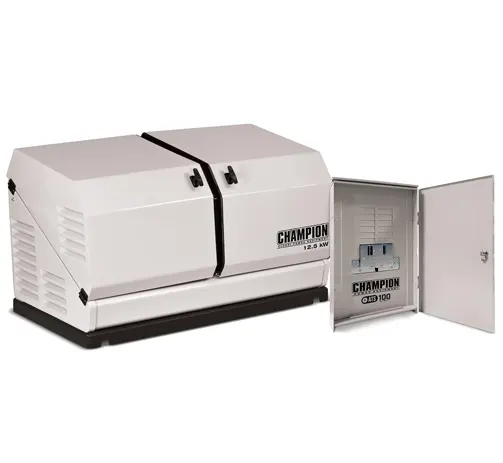
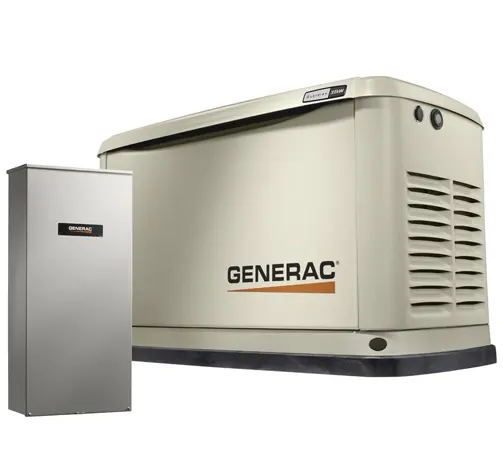
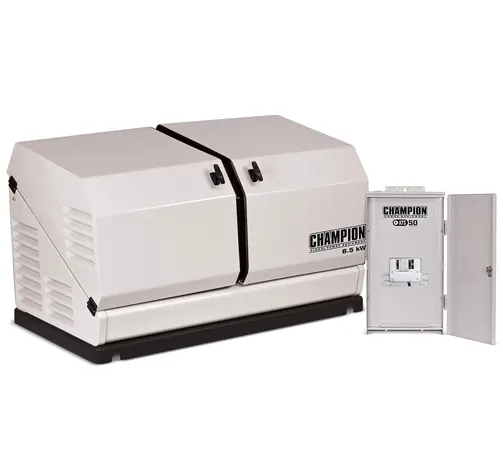
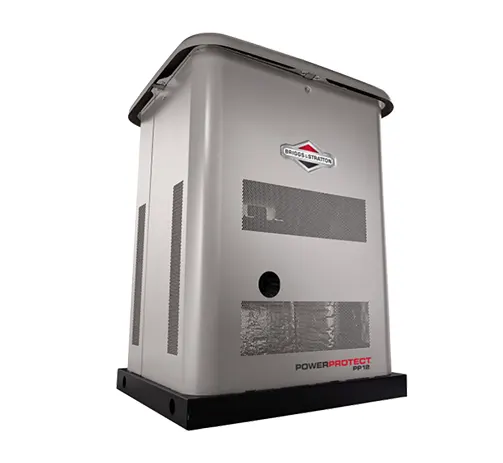
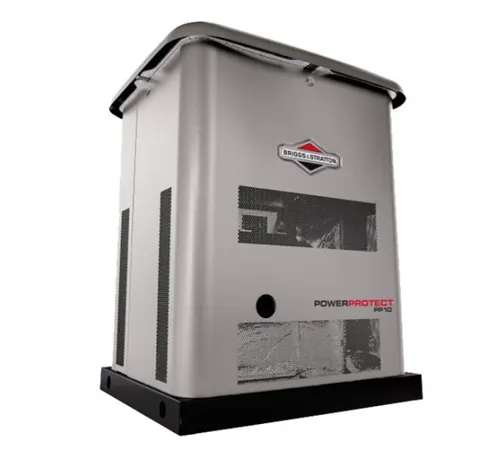
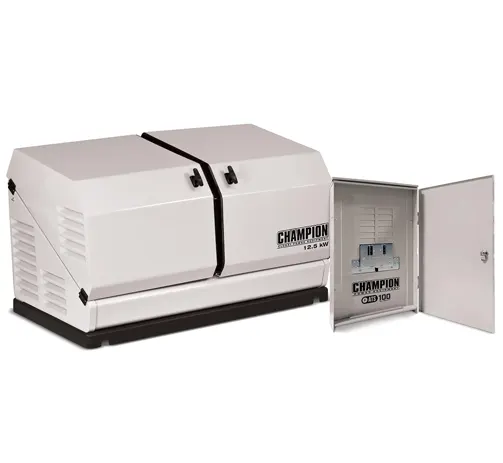

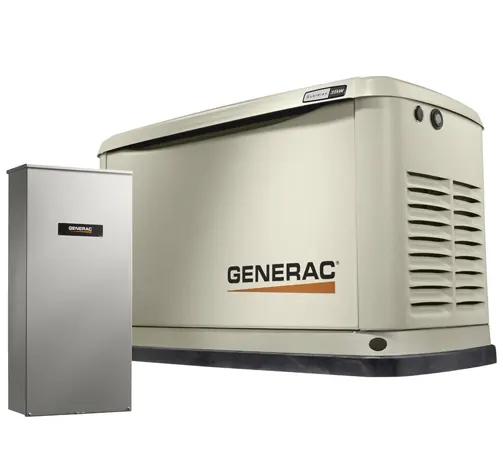












Leave your comment